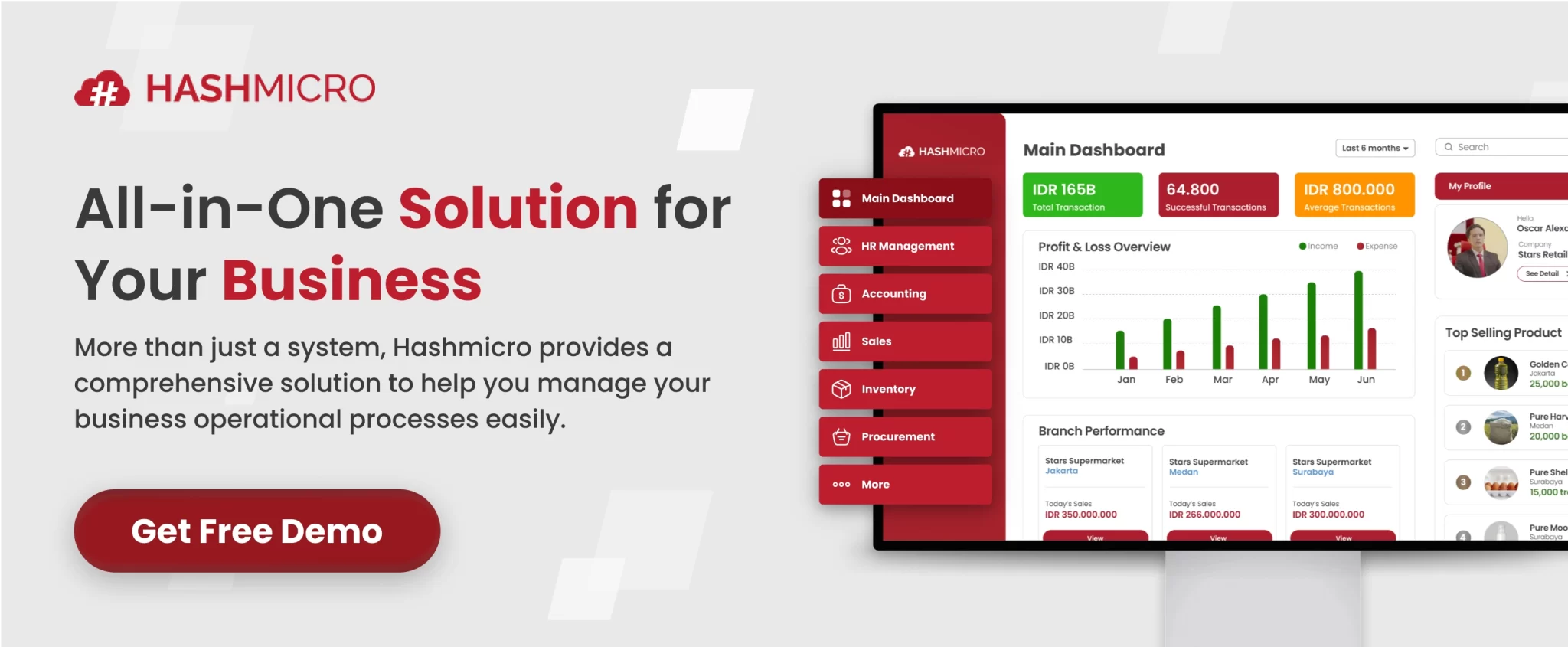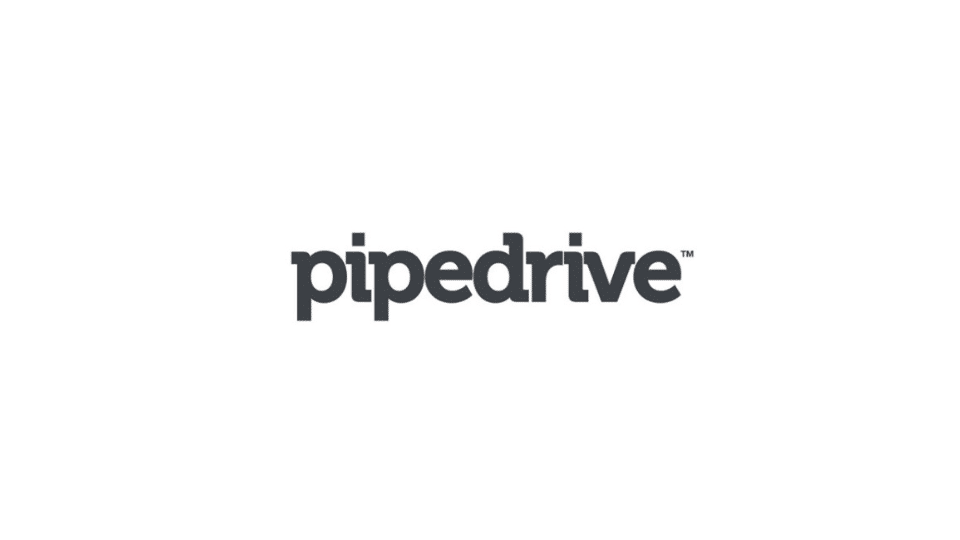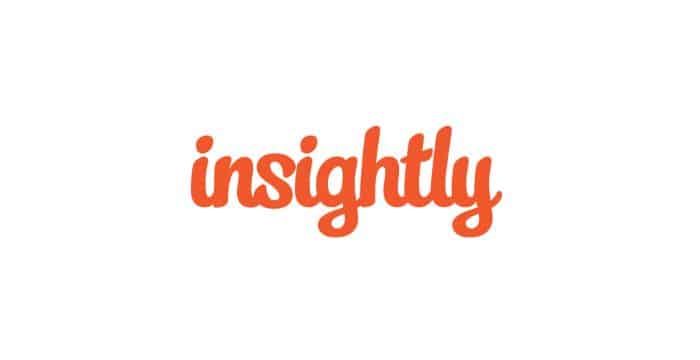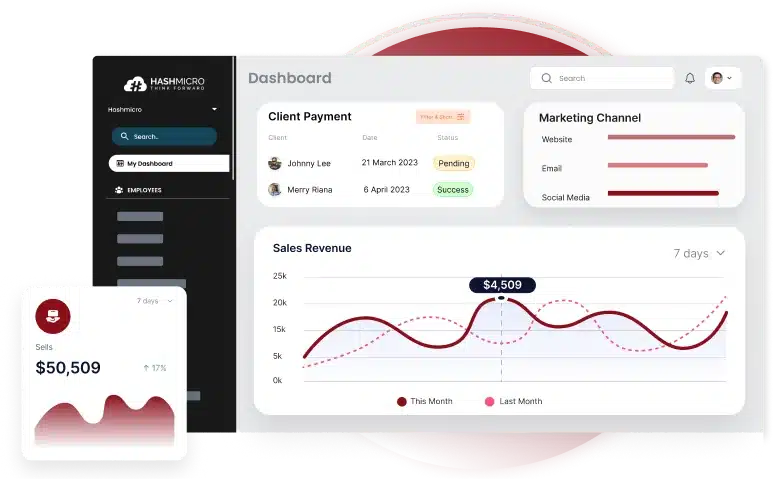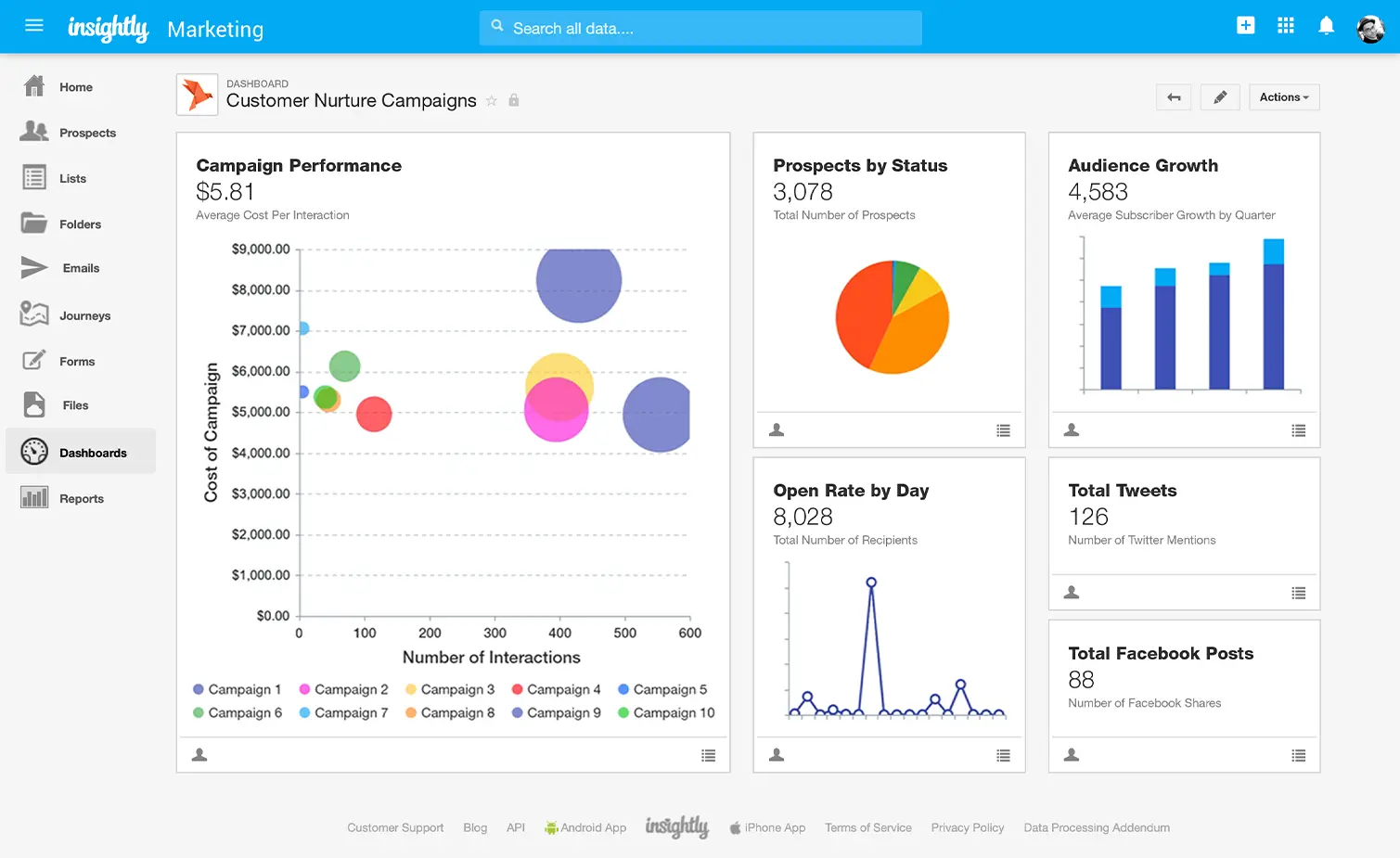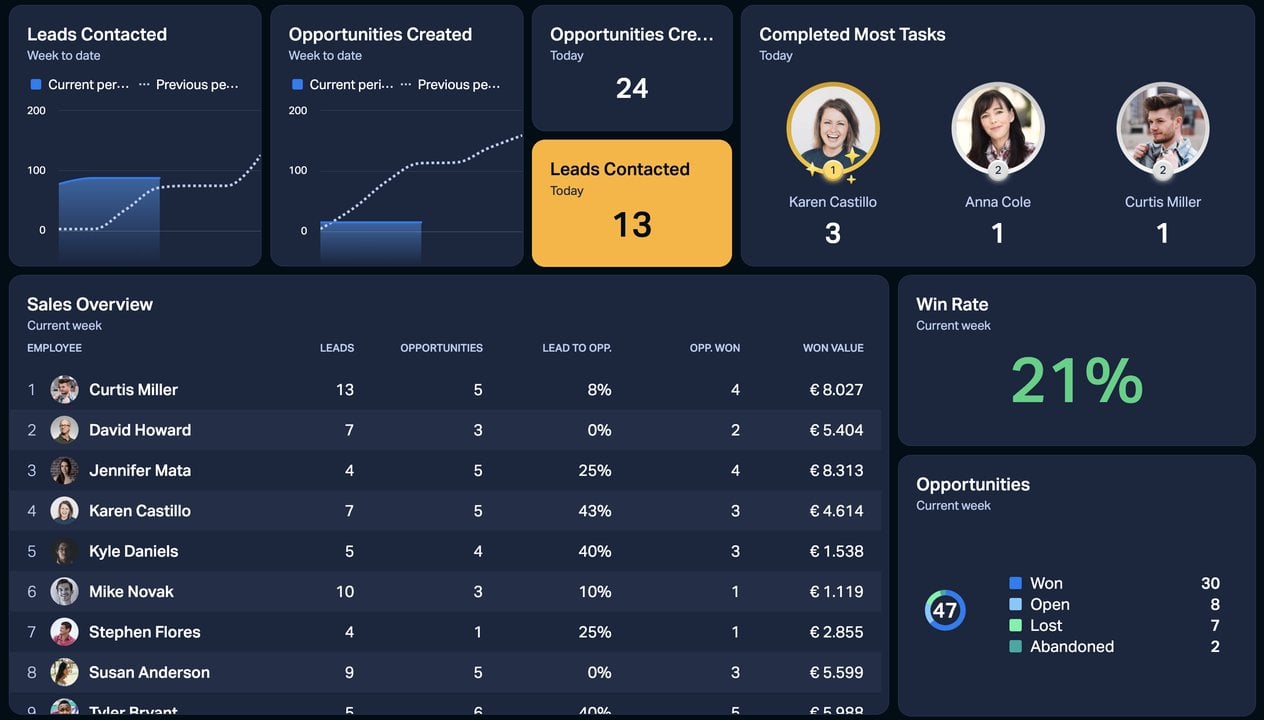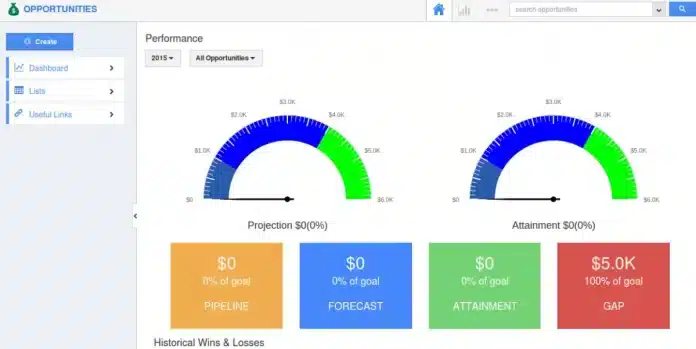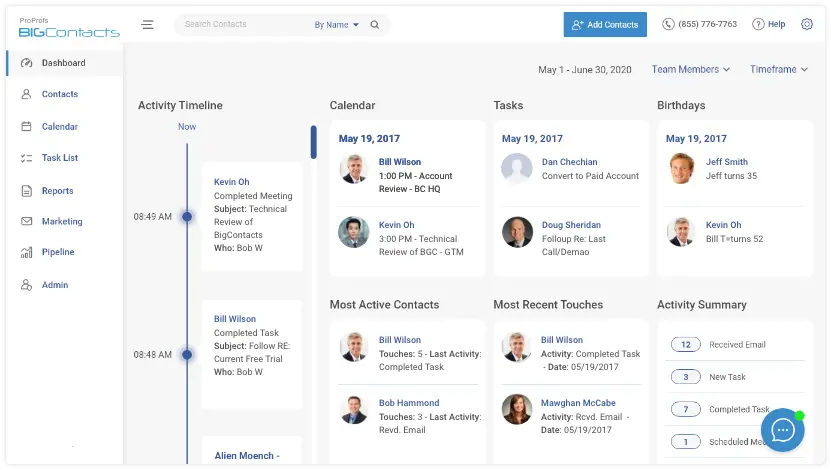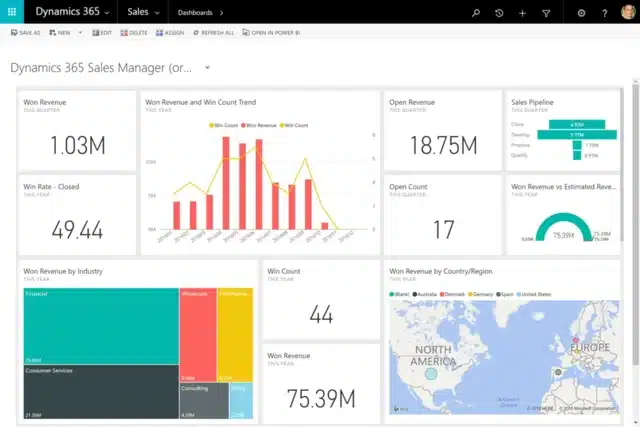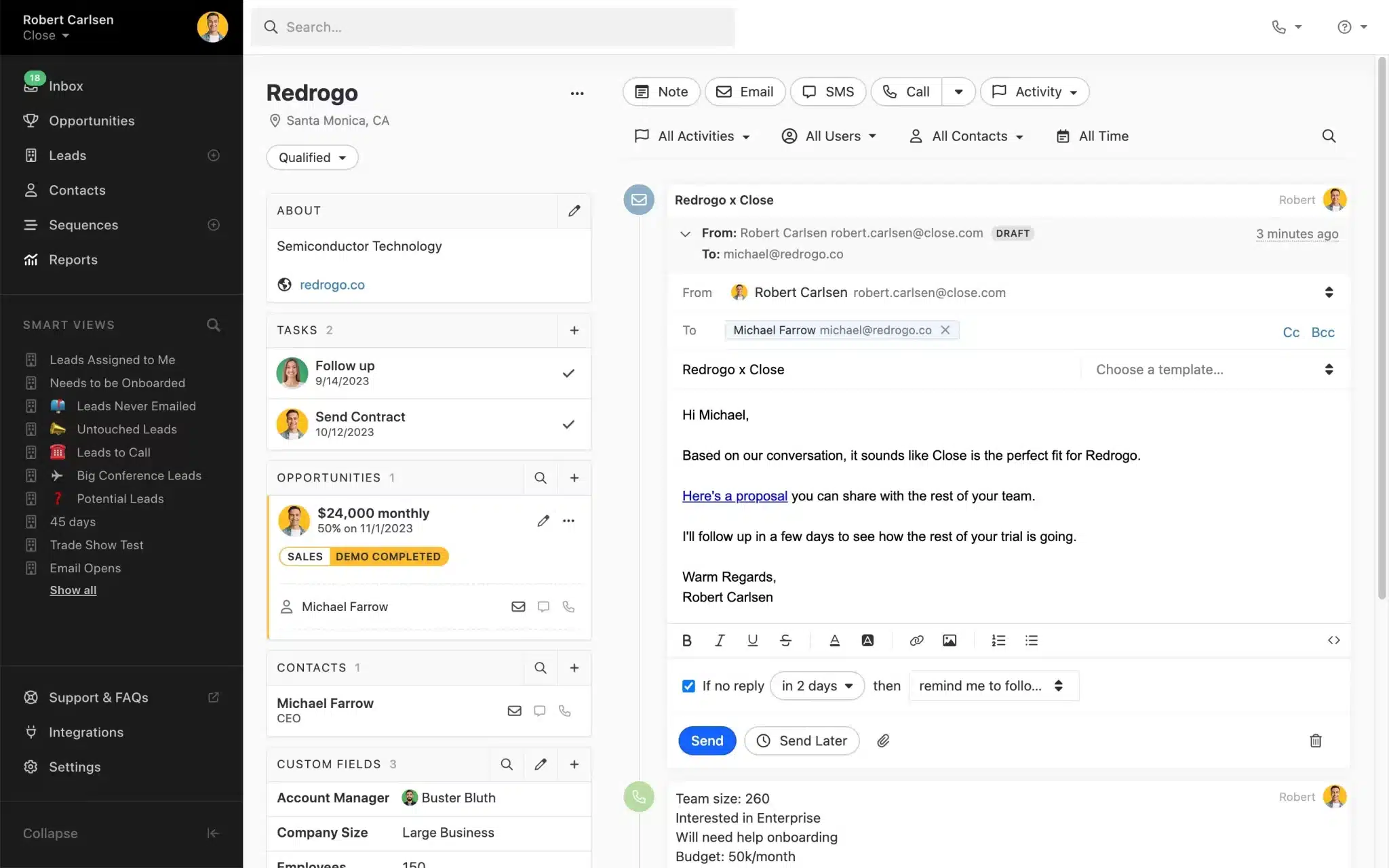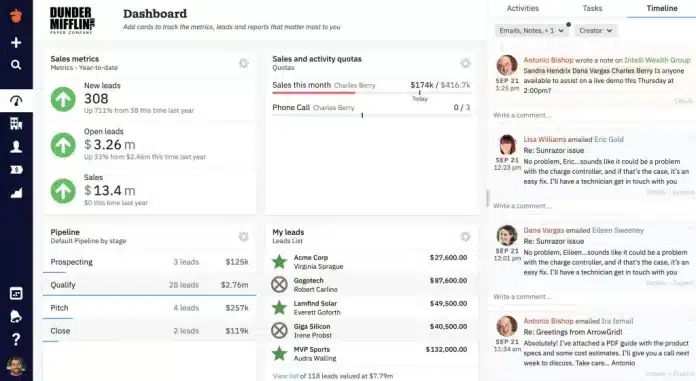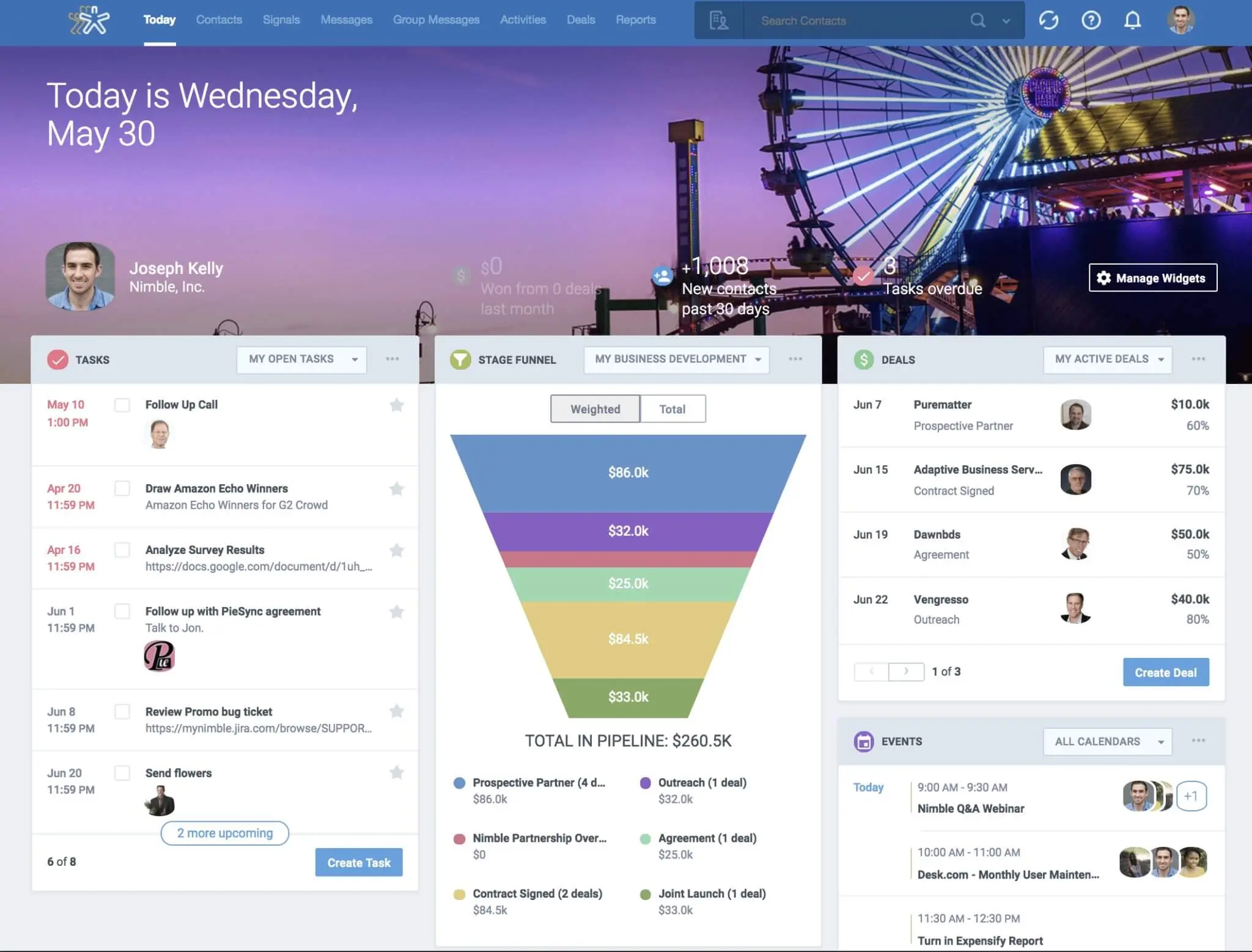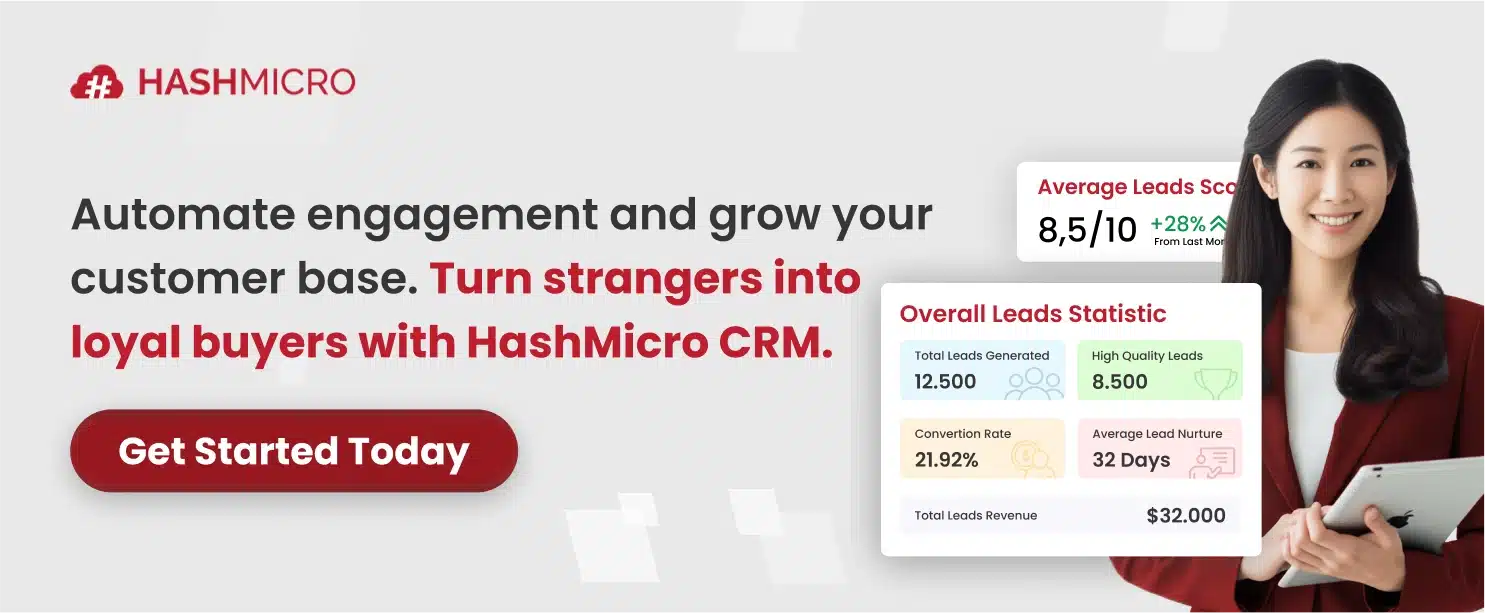CRM software might sound simple, but for many businesses in Singapore, turning customer data into real engagement is still a challenge. Customers now expect quick, personalised responses, and keeping up can feel like a full-time job.
The problem? Many companies struggle with outdated or disconnected CRM systems. That means poor visibility into customer data, missed sales opportunities, and interactions that feel inconsistent. Even the best teams can only do so much without the right tools.
In fact, an IDC Asia/Pacific study shows that 65% of Singaporean businesses rank improving customer experience as a top tech priority, and CRM platforms are at the heart of that push. If you want to keep up, you’ll need a system built for today’s customer-first approach.
In this guide, we’ve rounded up 12 of the best CRM tools for 2025. Whether you’re focused on sales, marketing, or operations, these platforms can help streamline your workflows and keep your customer relationships running smoothly.
Key Takeaways
|
What is CRM Software?
Customer Relationship Management (CRM) software is a tool that helps businesses organise, track, and manage customer interactions. It works by centralising data so teams can access insights to build stronger, more personalised relationships.
Beyond just storing contact details, CRM platforms integrate sales, marketing, and customer service into one system. This allows businesses to streamline workflows, monitor performance in real time, and ensure every interaction is consistent.
Suppose you’re wondering what is CRM in today’s context. In that case, it’s more than just a database; it’s a strategy supported by technology that helps businesses nurture relationships, close deals faster, and deliver better customer experiences.
For companies in Singapore, where customers demand fast and tailored responses, CRM software becomes essential for staying competitive and improving overall customer experience.
Quick Recommendations: Best CRM Software
I’ve reviewed a variety of CRM platforms in Singapore, looking at their features, usability, and overall value for different types of businesses. This makes it easier to see which tools stand out and why they’re worth considering.
Here are my quick recommendations for some of the best Customer Relationship Management tools to help improve sales tracking, customer engagement, and integration with other systems like marketing or accounting software.
Best Because Highly customizable and tailored for complex sales workflows.
Best Because
Combines CRM with strong inbound marketing features
Best Because
Widely used enterprise CRM with scalable features
Best Because
Affordable with flexible functionality.
Best Because
Focuses on simple and clear pipeline management.
Best Because
Provides AI-based insights and automation for sales teams.
Best Because
Includes CRM features along with basic project management.
Naturally, the recommendations above only provide a brief overview. In the following section, you will find a more comprehensive review of the 15 best CRM software in Singapore for 2025, complete with their key features and considerations for businesses of different sizes.
What Defines the Best CRM Tools?

The best CRM tools don’t just store customer information; they actively help businesses turn that data into meaningful action. A strong platform should make it easy to track interactions, automate routine tasks, and give teams a clear view of every customer journey.
What sets great CRM software apart is how well it adapts to different business needs. From sales pipelines and marketing campaigns to customer support tickets, the right system keeps everything connected in one place.
It should also be intuitive enough for teams to use daily without extra effort, while offering flexibility to scale as the business grows. In short, the best CRM tools are those that simplify work, improve customer experiences, and deliver insights that drive smarter decisions.
Here are some key traits that define a great CRM:
- Ease of use: Simple interface so teams can adopt it quickly.
- Automation: Handles repetitive tasks like follow-ups or reminders.
- Integration: Works seamlessly with other tools, from email to accounting software.
- Scalability: Grows alongside your business without extra hassle.
Analytics: Provides clear insights into customer behaviour and team performance.
Best CRM Software in Singapore 2025
When I looked for the best CRM platforms, I focused on tools that fix common issues in Singapore scattered data, slow follow-ups, and impersonal interactions. From dozens of options, these stood out for usability, flexibility, and real impact.
These are the CRM tools I’d recommend exploring in 2025 if you want to streamline workflows, keep your teams aligned, and deliver the kind of customer experience that truly makes a difference.
1. HashMicro CRM Software
HashMicro offers an integrated ERP system with a robust CRM module designed to enhance business efficiency and scalability. This versatile solution centralizes sales, providing businesses with a seamless and user-friendly platform that drives growth across industries.
Tailored for businesses in Singapore, HashMicro’s CRM system helps automate sales, improve engagement, and deliver actionable insights. You can explore its full potential through a free demo to see how it supports your customer relationship strategy.
With the added benefit of real-time reporting and integrated analytics, HashMicro CRM enables businesses to stay ahead of the competition by providing up-to-date customer insights and sales performance metrics.
Below are some key features offered by HashMicro:
- CRM Leads Management: By centralizing all lead data in one system, businesses can easily track and manage potential customers, leading to better organization and improved lead conversion rates.
- Leads Quality Scoring (Hash Quality Score): Assigning a quality score to each lead helps prioritize high-potential prospects, ensuring that sales teams focus on leads most likely to convert, which boosts efficiency and sales performance.
- Leads & Opportunities Management with Call Logging and Activity Tracking: Logging calls and tracking past activities on leads and opportunities allows for detailed follow-up and better sales decision-making, resulting in more successful conversions and stronger customer relationships.
- Email Blaster (SMTP from client): Integrating email blasting with SMTP allows businesses to send mass emails from their own server, providing a secure and personalized communication channel that enhances marketing reach and engagement.
- Fully Integrated Online Lead Management Forms & Emails: Automatically capturing leads from forms and emails ensures no lead is missed and allows for timely responses, driving faster engagement and improving lead nurturing processes.
- Mobile CRM Apps (Android & iOS): With CRM apps available on mobile devices, sales teams can access real-time data and manage customer relationships from anywhere, leading to increased productivity and quicker decision-making.
- Activity Scheduling, Management & Reminders: Automating the scheduling of tasks and setting reminders ensures that no critical customer touchpoint or follow-up is missed, leading to improved customer satisfaction and timely sales closures.
- Sales Team Management: By tracking team performance and activities, managers can identify areas for improvement, optimize resource allocation, and drive better sales results across the team.
- Meeting Scheduling & Tracking Past Meetings: Scheduling meetings and tracking past interactions enables businesses to plan future engagements more effectively, ensuring personalized communication and stronger customer connections.
- In-depth CRM & Marketing Reports (Sales, Mass Mailing, Helpdesks): Generating detailed reports on sales activities, marketing campaigns, and customer support helps identify trends and inefficiencies, empowering data-driven decisions that enhance business strategy and customer retention.
Additionally, with AI for Sales, businesses can benefit from intelligent upselling suggestions, real-time sales forecasting, and activity tracking that optimize decision-making and boost conversion rates.
As an all-in-one solution, HashMicro CRM integrates smoothly with other ERP modules, including accounting, inventory, and HR, streamlining processes across departments. Whether looking to improve customer satisfaction or boost internal efficiency, HashMicro’s CRM provides the tools needed for long-term success.
| Pros | Cons |
|
|
To learn more about available plans, simply click the pricing banner below and explore the option that best suits your business needs.
2. HubSpot CRM
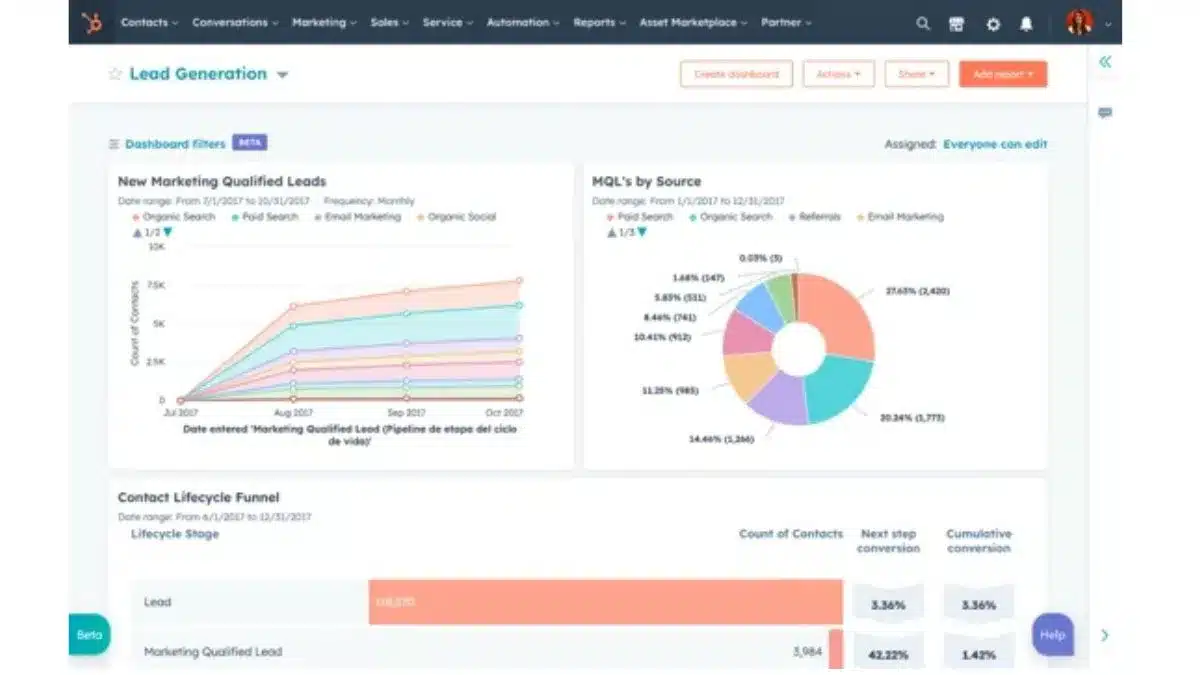
HubSpot CRM has built its reputation as a user-friendly platform designed to help businesses automate and streamline their inbound marketing and sales processes. It is widely appreciated for its easy setup and user-centric features that integrate seamlessly with various marketing tools.
Key Features:
- Lead and pipeline management
- Email tracking and templates
- Integrated marketing automation tools
- Reporting dashboards
- Extensive third-party integrations
| Pros | Cons |
|
|
3. Salesforce Sales Cloud
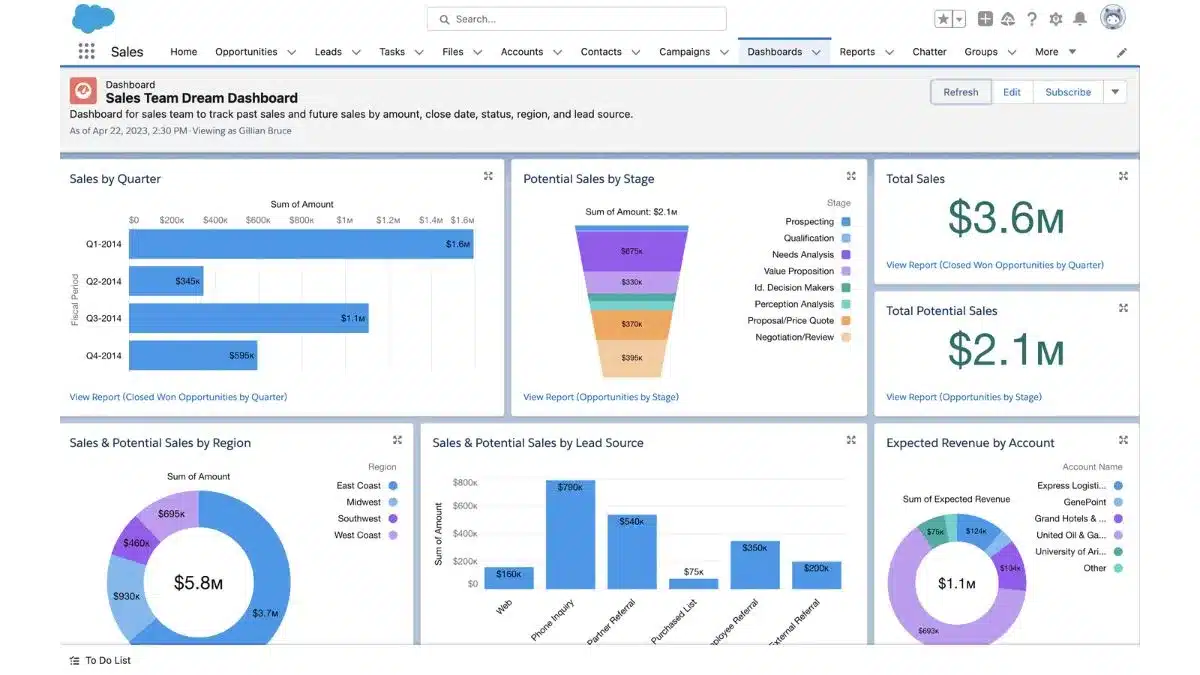
Salesforce Sales Cloud is a widely used CRM software known for its comprehensive suite of tools designed for businesses seeking to optimize their sales processes and customer interactions. It offers a robust platform that enterprises across various industries trust.
Key Features:
- AI-powered analytics and forecasting
- Customizable dashboards and reports
- Advanced lead management
- Wide range of integrations
- Mobile app for on-the-go management
| Pros | Cons |
|
|
4. Zoho CRM
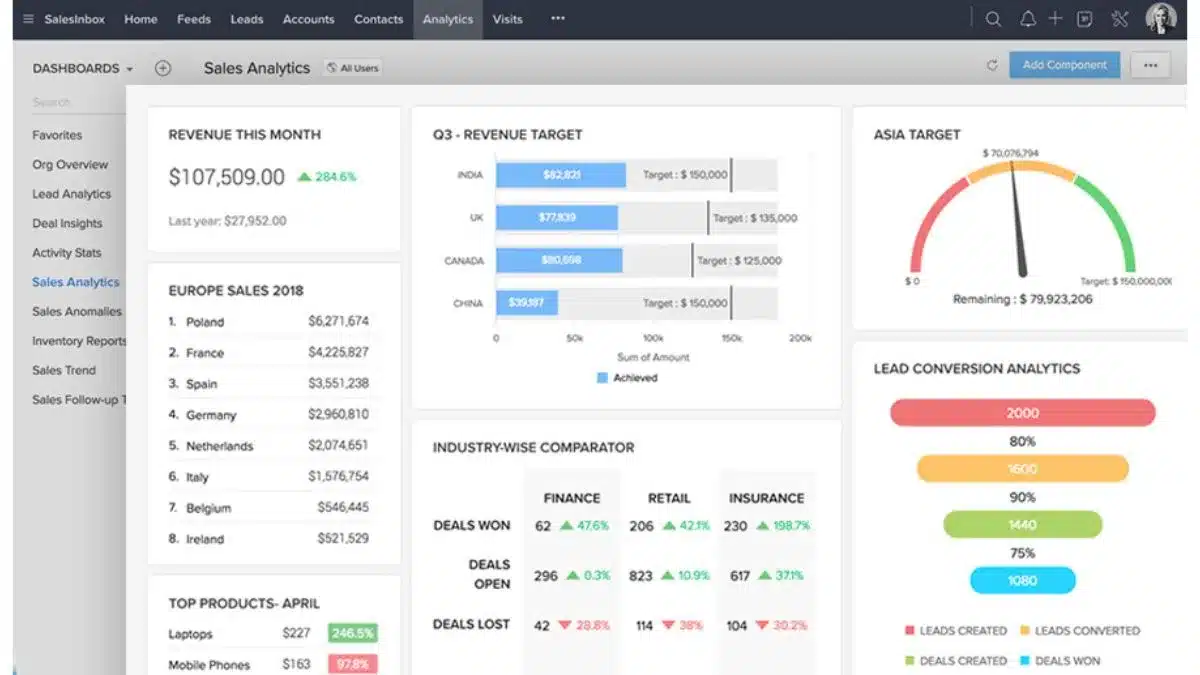
Zoho CRM stands out with its AI-powered automation and data analytics capabilities, making it an excellent choice for businesses aiming to enhance their lead management processes. It is well-regarded for its versatility and scalability across industries.
Key Features:
- AI-driven sales assistant
- Sales forecasting and analytics
- Multi-channel communication tools
- Automated workflows
- Lead scoring and segmentation
| Pros | Cons |
|
|
5. Pipedrive
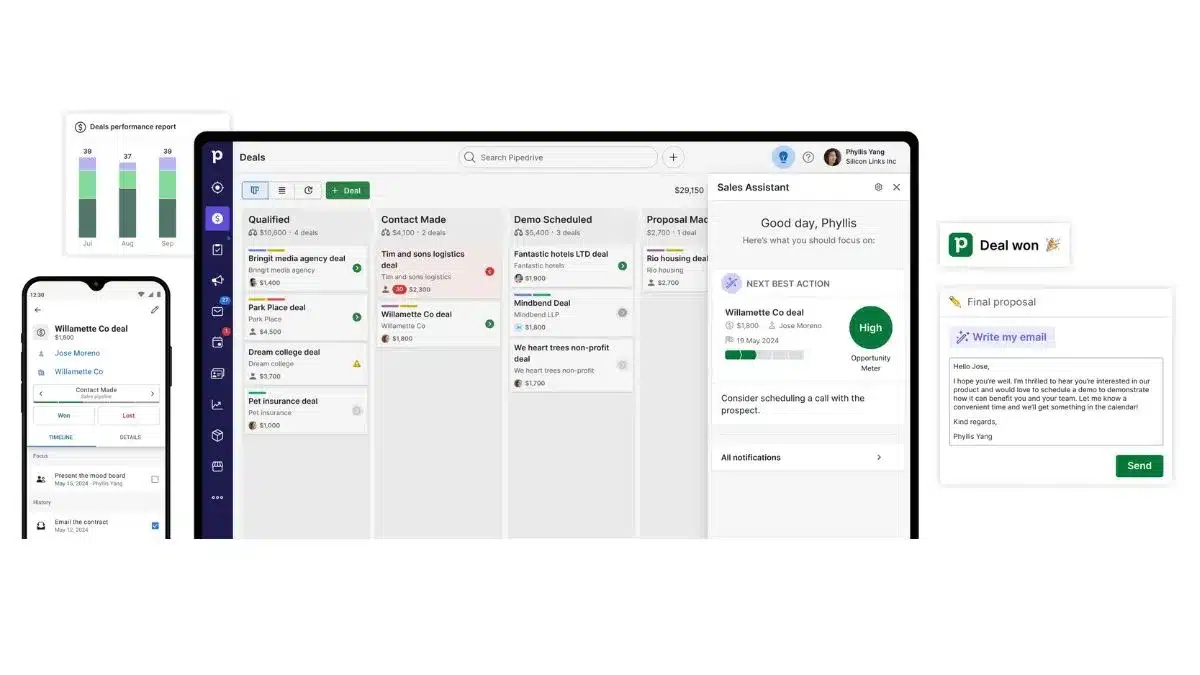
Pipedrive is designed for simplicity, offering a visually engaging CRM software that focuses on pipeline management and sales process optimization. It is ideal for sales teams looking for an intuitive tool to boost sales productivity.
Key Features:
- Visual sales pipeline management
- Lead and deal tracking
- Customizable workflow automation
- Reporting and insights
- Integration with email and calendar tools
| Pros | Cons |
|
|
6. Freshsales
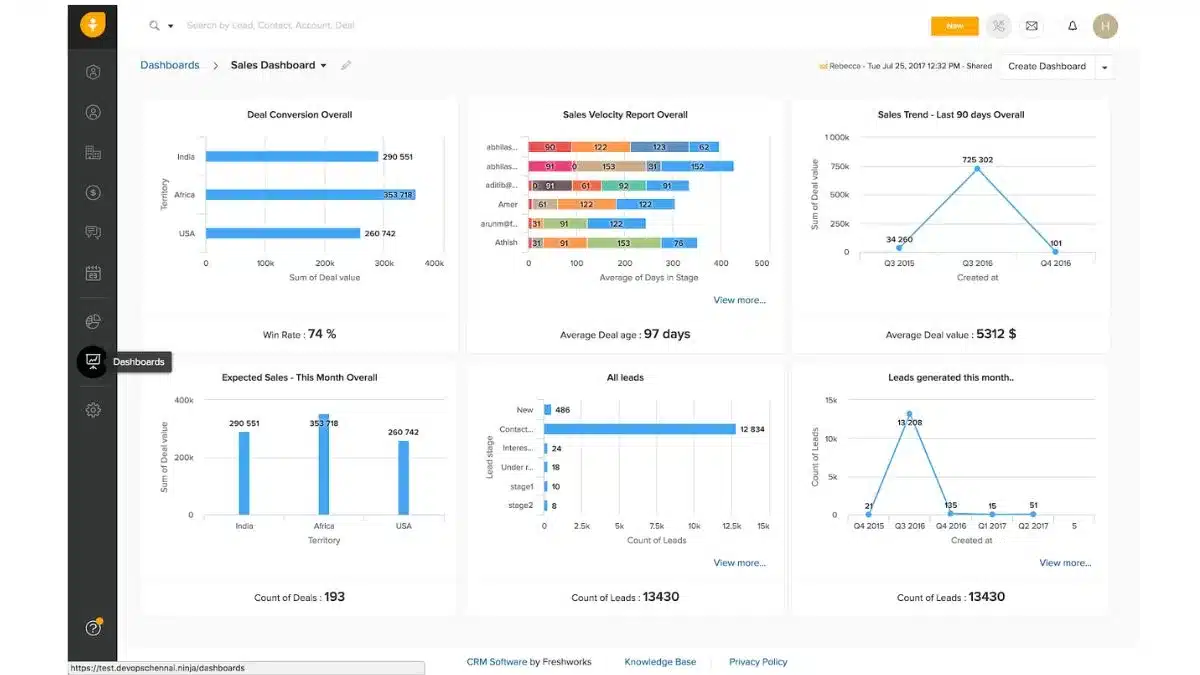
Freshsales is a CRM software built to enhance customer engagement and simplify lead management. It offers a user-friendly interface and a range of automation tools, ideal for businesses focused on improving sales cycles and customer relationships.
Key Features:
- Lead scoring and pipeline management
- Email tracking and campaign automation
- Real-time reporting and analytics
- Multi-channel communication
- Easy integration with other Freshworks products
| Pros | Cons |
|
|
7. Insightly
Insightly provides a CRM software that combines project management with customer relationship tools, making it an excellent choice for businesses seeking to manage customer data while also effectively overseeing projects.
Key Features:
- Lead and project management
- Workflow automation
- Customizable dashboards and reports
- Integration with popular apps like Google Workspace
- Task and event tracking
| Pros | Cons |
|
|
8. Copper
Copper is designed for businesses that use Google Workspace, offering deep integrations with Gmail, Google Calendar, and other Google apps. It provides an intuitive and streamlined experience for teams already using Google tools.
Key Features:
- Seamless Google Workspace integration
- Smart data entry and workflow automation
- Email tracking and collaboration tools
- Advanced reporting and analytics
- Customizable pipeline management
| Pros | Cons |
|
|
9. monday.com
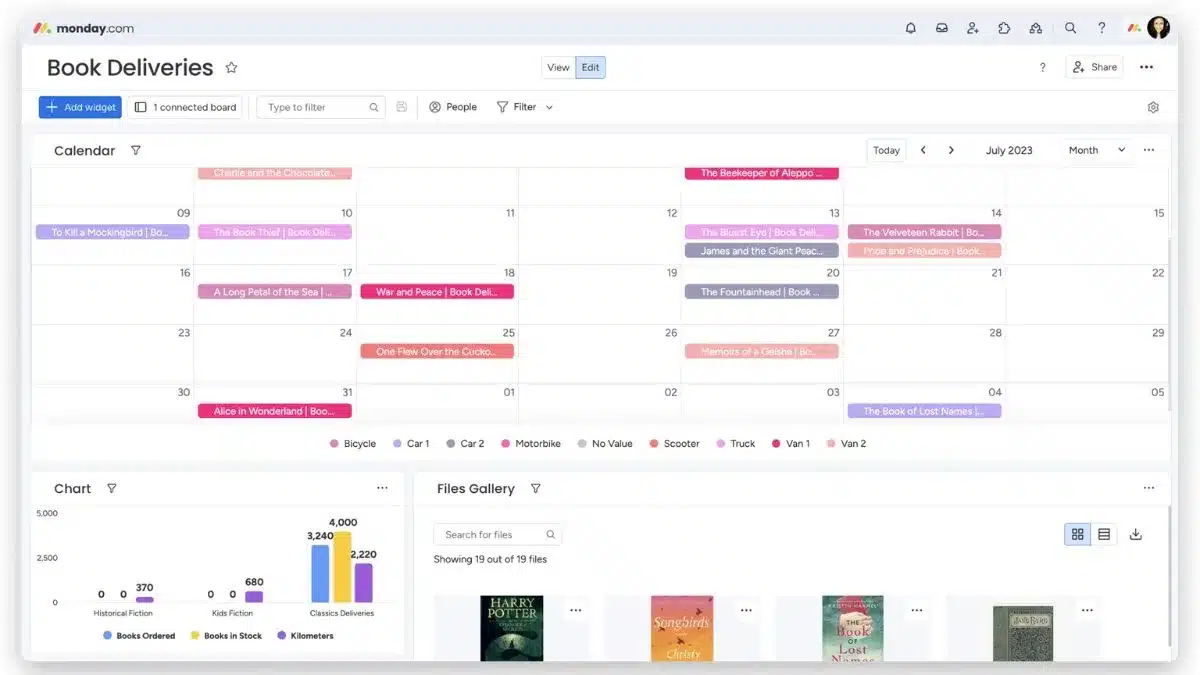
Monday.com is a CRM software that offers a powerful project and task management solution with strong customer relationship features. It helps businesses organize workflows, track leads, and manage sales pipelines effectively.
Key Features:
- Customizable workflows and dashboards
- Lead and project tracking
- Sales and task management automation
- Visual reporting tools
- Easy integrations with various apps
| Pros | Cons |
|
|
10. Apptivo CRM
Apptivo CRM is a versatile platform with a broad array of features, including sales tracking, invoicing, and project management. It is highly customizable and suitable for businesses of all sizes.
Key Features:
- Sales pipeline management
- Project and task management
- Invoicing and billing tools
- Workflow automation
- Customizable dashboards
| Pros | Cons |
|
|
11. BIGContacts
BIGContacts is a simple, user-friendly CRM software designed for small and medium businesses. It offers essential CRM features with a focus on ease of use and affordability.
Key Features:
- Contact and lead management
- Sales pipeline tracking
- Task and reminder system
- Email marketing automation
- Integration with Google Apps
| Pros | Cons |
|
|
12. Microsoft Dynamics 365
Microsoft Dynamics 365 is a powerful CRM that integrates seamlessly with other Microsoft products, making it ideal for businesses already using Microsoft tools. It offers a wide range of features for sales, marketing, and customer service teams.
Key Features:
- Integration with Microsoft products
- AI-driven insights and forecasting
- Customizable workflows and dashboards
- Customer service and support tools
- Sales and marketing automation
| Pros | Cons |
|
|
13. Close CRM
Close CRM is designed with sales teams in mind, offering a streamlined platform to manage pipelines and close deals faster. With its built-in communication tools and simple interface, it helps teams focus on selling rather than admin work.
Key Features:
- Built-in calling, SMS, and email
- Visual sales pipeline tracking
- Automated reminders and follow-ups
- Custom reports and analytics
- Integrations with other tools
| Pros | Cons |
|
|
14. Nutshell CRM
Nutshell CRM is a user-friendly platform built to simplify sales and customer management for small to mid-sized businesses. Its focus on usability and collaboration makes it a reliable option for teams that want powerful features without the complexity of enterprise systems.
Key Features:
- Intuitive pipeline and contact management
- Email automation and tracking
- Customizable sales reporting
- Team collaboration tools
- Integrations with apps like Google Workspace
| Pros | Cons |
|
|
15. Nimble CRM
Nimble CRM is a lightweight yet powerful solution designed for businesses that want simple relationship management without heavy complexity. Known for its strong social media integration, Nimble helps teams build better connections by unifying contacts, communication, and insights in one place.
Key Features:
- Unified contact management
- Social media integration
- Built-in email tracking and engagement tools
- Pipeline and deal tracking
- Task and calendar management
| Pros | Cons |
|
|
Choosing the Right CRM Software

Selecting the right Customer Relationship Management tools is crucial for any Singaporean business aiming to improve customer engagement and streamline operations. With so many CRM tools available in the market, evaluating each option is essential based on your company’s size, goals, and workflow.
Below are six key factors to consider when choosing the most suitable tools for customer relationship management:
- Define your business needs: Start by identifying the specific challenges your business wants to solve, whether it’s lead tracking, sales automation, or customer service. The best customer relationship management tools will address these needs directly and support your day-to-day processes.
- Prioritise key features: Look for CRM systems that offer features aligned with your goals, such as marketing integration, real-time reporting, or mobile accessibility. Choosing CRM tools that support your sales and customer journey can boost overall team productivity.
- Check for ease of use: A user-friendly interface can make all the difference in CRM adoption across your team. If your staff can’t navigate the system easily, even the most powerful CRM customer relationship management tools won’t deliver results.
- Evaluate integration capabilities: Ensure the CRM integrates smoothly with your existing business tools, email platforms, marketing automation, or accounting software. Seamless integration makes your tools for customer relationship management far more efficient and central to operations.
- Consider your budget: Review the CRM’s pricing structure to see if it fits within your financial plans, whether a monthly subscription or a per-user model. Be sure to compare value, not just cost, to avoid sacrificing necessary functionality for savings.
- Think long-term with scalability: Choose a CRM that can scale alongside your business as it grows in size and complexity. Scalable customer relationship management tools will help future-proof your operations without needing to migrate to another system later.
Conclusion
Choosing the right CRM tools helps businesses strengthen customer relationships, increase sales, and grow efficiently. In Singapore, the best option is the one that matches your goals, industry, and team needs.
For businesses looking for a CRM built for local operations, HashMicro delivers an all-in-one system to streamline sales, automate lead tracking, and personalise engagement. It’s a reliable and flexible choice for companies that want proven results.
Ready to take the next step? Try a free demo of HashMicro CRM today and experience how this scalable solution can transform your customer relationships and business performance.
FAQ About CRM Software
-
What are the 4 types of CRM?
Grasping the four main types of CRM operational, analytical, collaborative, and strategic—is essential for choosing the right system that can effectively support your business growth.
-
Is CRM easy to learn and use?
In general, CRM software is fairly easy for teams to adopt. However, the learning curve can vary depending on the platform and the team’s level of experience and training. Some systems are designed to be more intuitive and user-friendly than others.
-
What are the three CRM tools?
Interactive experiences strongly influence customer journeys across all marketing channels. Modern enterprise CRM combines sales, marketing, and customer service tools. Key types include Operational CRM for process automation, Collaborative CRM for team coordination, and Analytical CRM for data-driven insights.


